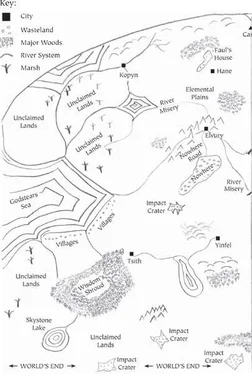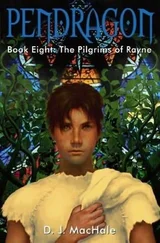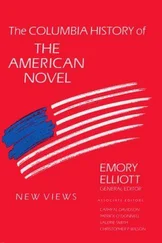Will Elliott - The Pilgrims
Здесь есть возможность читать онлайн «Will Elliott - The Pilgrims» весь текст электронной книги совершенно бесплатно (целиком полную версию без сокращений). В некоторых случаях можно слушать аудио, скачать через торрент в формате fb2 и присутствует краткое содержание. Жанр: Фэнтези, на английском языке. Описание произведения, (предисловие) а так же отзывы посетителей доступны на портале библиотеки ЛибКат.
- Название:The Pilgrims
- Автор:
- Жанр:
- Год:неизвестен
- ISBN:нет данных
- Рейтинг книги:5 / 5. Голосов: 1
-
Избранное:Добавить в избранное
- Отзывы:
-
Ваша оценка:
- 100
- 1
- 2
- 3
- 4
- 5
The Pilgrims: краткое содержание, описание и аннотация
Предлагаем к чтению аннотацию, описание, краткое содержание или предисловие (зависит от того, что написал сам автор книги «The Pilgrims»). Если вы не нашли необходимую информацию о книге — напишите в комментариях, мы постараемся отыскать её.
The Pilgrims — читать онлайн бесплатно полную книгу (весь текст) целиком
Ниже представлен текст книги, разбитый по страницам. Система сохранения места последней прочитанной страницы, позволяет с удобством читать онлайн бесплатно книгу «The Pilgrims», без необходимости каждый раз заново искать на чём Вы остановились. Поставьте закладку, и сможете в любой момент перейти на страницу, на которой закончили чтение.
Интервал:
Закладка:
Other Invia have lingered in the air behind the castle for some days now. What interests them here? A possibility disturbs his thoughts and demands to be examined, however unlikely: when people come through into Levaal from Otherworld, the entry point is behind the castle.
The thought is new, and troubling, and connects immediately with another: one of the Strategists claims that Vous was in that valley himself some days ago, walking with his head bowed, hands clasped behind his back. That Vous has left the upper floors at all, much less the castle, is very strange. And the Arch Mage has felt himself the pull from those strange rippling effects, like blind groping tentacles reaching for that spot, for the entry point …
Otherworld. People from that mysterious place are not wanted on the Arch Mage’s board, where already there are too many free and mighty pieces beyond his hand. From the Hall of Windows he has glimpsed their world and what he has seen disturbs him. They command no traditional magic, it appears, but much machinery that looks magical. He has seen weaponry that left him sleepless for days with fear and desire. He has seen pillars of flame beneath enormous clouds shaped like mushrooms, and wondered if he were dreaming.
To open the gap between worlds is high, high magic; a human would not survive even a failed attempt at it. But Vous is not human any more. The Arch Mage pictures him lurking near the entry point in that high green valley. It is likely that Vous doesn’t even have a reason for being there; he is under the influence of much more than his scattered human brain. The Arch Mage thinks: Not a user of magic, a force of magic, and his worry grows.
In chess, you cannot take your own pieces off the board, only invite your opponent to do so. His opponents — the Free Cities — have not wits or will left among them to take Vous away, and leave room for a new, more suitable replacement. The Arch Mage himself dares not try it. The only way it can be done is by Vous’s own choosing.
The sky’s lightstones begin to fade. The Arch Mage thinks long into the night, but just two things keep seizing his thoughts. He summons a war mage, sends it to guard the high valley behind the castle and orders it to kill everything that comes through, for the entry point is one thing his thoughts linger on. The other, about which he has less certainty, is the word ‘shadow’.
4
The working day ahead loomed like one of three big unwelcome hills between Eric Albright and the weekend. The saving grace of the modern age was that it was socially acceptable to spend that weekend playing computer games in your underwear, inhaling pizza, with or without a sixpack open on the desk beside you, at age twenty-five and beyond. The extended adolescence, some called it. He called it therapy.
For now Eric played grown-up and dressed in business shirt, slacks, tie and polished black shoes. Following the career path of Clark Kent, he was a journalist for NSx , a ‘cool’ newspaper geared to twenty- to thirty-year-olds, distributed free throughout the city (and slowly going broke). That Eric had held his job so long was a mystery just recently and unpleasantly solved. He’d become aware that he was a sort of cult attraction for the paper’s readers, as his fifty-word entries for lost dogs or the odd sports report and restaurant review (when a real food critic couldn’t be found) were always far too emotional and involved. Fan mail had been sent to the editor, something they’d tried to keep hidden from him. It was both novel and deeply worrying: in the trade he’d staked his dreams on, writing, it was his inability, not his ability, that had kept him employed while heads rolled all around him.
It had not been deliberate: the people calling to report lost dogs had actually made him sad. He cringed with embarrassment, thinking back to what they’d published in his name: Our dear friend Rexie, part Scottish Terrier, part cattle dog. Last seen Brickworks Ave. We’re lost without your simple little joys. Furious wagging tail to welcome us home. Even the bad: barking, holes in the yard. Don’t be afraid. You will chase your ball again. Help us! Rexie, come back .
The fan mail described him as ‘hilarious’ and ‘a trip’. How then were his novels going to fare? The printed pages were scattered across his bedroom floor where they’d been flung in despair. One was a murder mystery, with ghost story parts thrown in (the ghost did it). The others were about superheroes he’d invented. One was named Death Row, a former convict who’d escaped and seen the light, and now fought crime via magic powers resembling methods of execution: lethal injection, electric chair, hangman’s rope, so on. Perhaps it was all uproariously funny …
He hesitated before locking the flat’s front door behind him, very tempted to call in sick. How was he supposed to submit articles knowing they were being read by people trying not to laugh until he’d left the room? Worse, how was he supposed to be funny on purpose , now he knew that was what they wanted?
His polished shoes beat down on the old concrete regular as clockwork, tap tap tap , carrying him towards an air-conditioned room in a tall building in the city’s inner peaks. More pleasant-looking than handsome, he was slim with straight blond hair falling in a cropped wave, bright eyes and a soft mouth with a slight overbite. Seeing himself stride across the glass of store windows, he did not think a stranger’s eye would pick him out from the street’s background of normality; but if it did, its owner would be unable to imagine him as anything other than office worker . Nor, to his horror, could he . He wore not a suit, but himself, and suddenly knew he could never take it off. If he slipped into a phone booth, he’d leave it buck naked, to jeers and pointing fingers.
He hadn’t realised how badly this business at the paper had affected him. The very concrete underfoot seemed to slip and shake. It was as if he’d caught a mirror’s reflection from an angle never seen before, and was now unable to look away.
The street dipped and curved. At its end was a bridge, with a bike path underneath running through a wide shadowy tunnel, opened like a yawning mouth. The bridge overhead clattered with the ungodly sound of a train, howling its way across with another load of Erics and Ms Erics, young and old, towards their own air-conditioned rooms in tall buildings, where, like the Eric passing below them, they did this or that with paper, computers, calculators, pens, phones, headsets, coffee cups, and all the rest. He fancied he saw their faces in the passing windows, each one identical to his own.
Beyond the bridge was a seedy old park you didn’t want to walk through at night, where slept a seedy old drunk Eric occasionally played chess with.
Below the bridge the mostly brick wall was thick with colourful graffiti slapped on with deft skill, almost pleasing to the eye but not quite, thanks to the tangled black scrawl across it saying MINE in street code. In the part of the wall that seemed always to be in shadow, there was something Eric’s peripheries sometimes caught on, something he felt (without ever really reflecting on it) to be an odd addition to the paintwork. It was a small red door made of little wooden planks. Black spraypainted tags had made their way like cracks across the boards.
What he hadn’t noticed until now was that the wood was real . The door was real. Not a painting, as he had always assumed; no, someone had built it into the wall, or stuck it on somehow. Why?
The tap tap tap of his footsteps paused as he looked more closely. This red door — about the height of his shoulder and just a bit wider than him — had been so much part of the background that it was a bit of a jolt to see it right here before him now, despite its having been there all the while. It had been there the whole time, he assumed …
Читать дальшеИнтервал:
Закладка:
Похожие книги на «The Pilgrims»
Представляем Вашему вниманию похожие книги на «The Pilgrims» списком для выбора. Мы отобрали схожую по названию и смыслу литературу в надежде предоставить читателям больше вариантов отыскать новые, интересные, ещё непрочитанные произведения.
Обсуждение, отзывы о книге «The Pilgrims» и просто собственные мнения читателей. Оставьте ваши комментарии, напишите, что Вы думаете о произведении, его смысле или главных героях. Укажите что конкретно понравилось, а что нет, и почему Вы так считаете.












